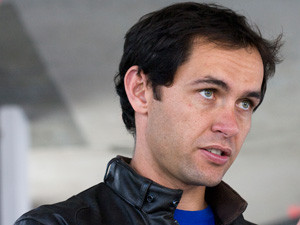
Political decision-makers have helped ensure the roll-out of free WiFi access in Tshwane, says Alan Knott-Craig Jr.
Knott-Craig Jr, a chartered accountant who was previously the CEO of mobile messaging service Mxit and former CEO of wireless broadband service provider iBurst, now heads up non-profit Project Isizwe.
This non-profit seeks to bring Internet access to Africans by facilitating the roll out of free WiFi in public spaces in low-income areas. Project Isizwe believes the Internet should be considered an essential service, such as water and electricity, and that it should be available to everyone, regardless of circumstance.
The City of Tshwane is the first recipient of Project Isizwe WiFi. Locations equipped with the service include Church Square in the central business district, education facilities such as the University of Pretoria in Hatfield, and a community centre in the Mamelodi township.
No login or password details are required to access the service, and a fair usage policy limits users to a data cap of 250MB. Average broadband speeds are planned to be 1Mbps download and 256Kbps upload. Pornography Web sites are blocked by the service to prevent abuse.
Phase one of the project was officially launched this week while the second phase is set to connect an additional 213 free Internet zones around Soshanguve, Mamelodi and Atteridgeville by the end of 2014.
Government workers from Tshwane IT, City Power and the water department helped implement the Project Isizwe initiative. Neotel also supported the project by providing an Internet breakout of 200Mbps.
Meanwhile, Knott-Craig Jnr told ITWeb Africa on Wednesday that Project Isizwe's relationships with Tshwane government workers in particular has been key to rolling out such a project. "There's no technical reasons why this can't be replicated everywhere, except political will," he said. "If you find a key political decision-maker... you can get this done."
He added that the first key requirement to achieving roll out is setting up a non-profit organisation to carry out the project, so as to cut out a "middleman" and any profit incentives.
"The second thing is, we [need to be able] to use all the municipalities' buildings and rights of way and access without paying for it," Knott-Craig Jnr said.
He added that having government permission enables, for example, the quick laying down of fibre and digging up of public infrastructure where necessary - something that is difficult to achieve for private telecommunications firms.
"Then the last thing is that we're using WiFi," said Knott-Craig Jnr. "You can't do this if you're using 3G LTE; anything else is just too expensive.
"A WiFi base station costs R1 000; a 3G base station sets you back R100 000," Knott-Craig Jr. added.
On Tuesday, the first day the WiFi service was available in Tshwane, 514 unique users, or devices, logged onto the network, according to Tim Human of Project Isizwe.
Project Isizwe is planning to conduct roll-outs of free WiFi further afield than just Tshwane. "There are various proposals on the table for cities in SA and further afield in Africa," Human said.
"South Africa is the test bed for now, but there is no reason for not applying a cookie-cutter approach and applying this to the rest of Africa," he added.
Share